Innyoung Kim
Optimal mesh generation for a blade passage using deep reinforcement learning
Sep 08, 2022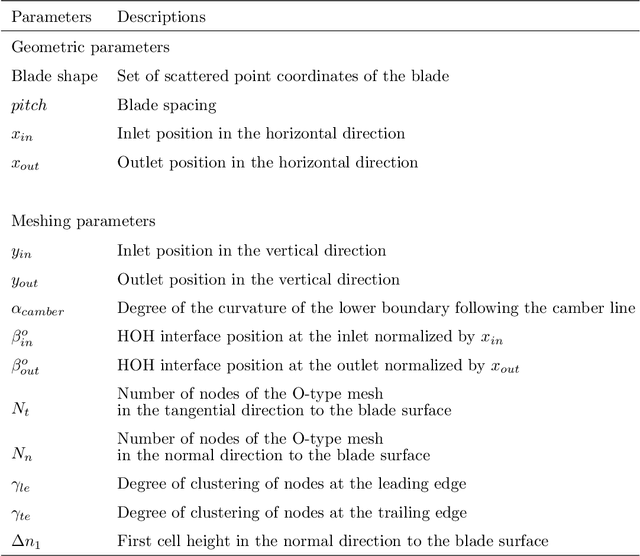
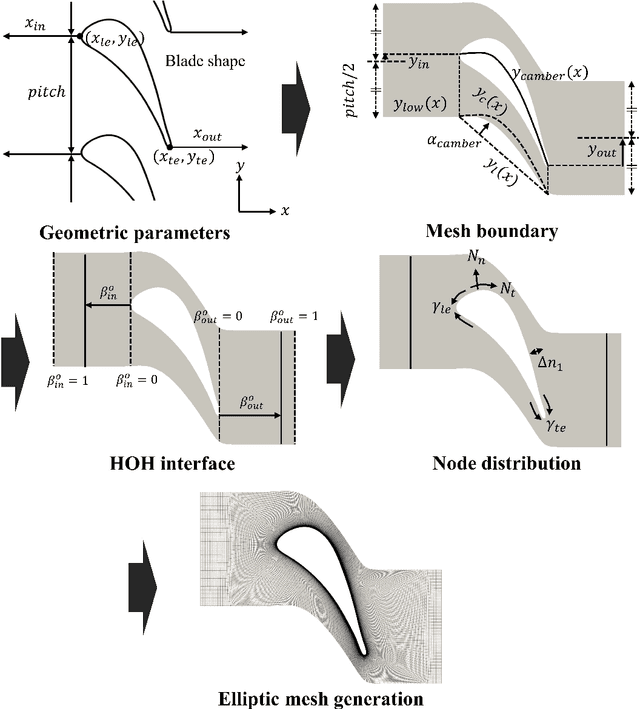
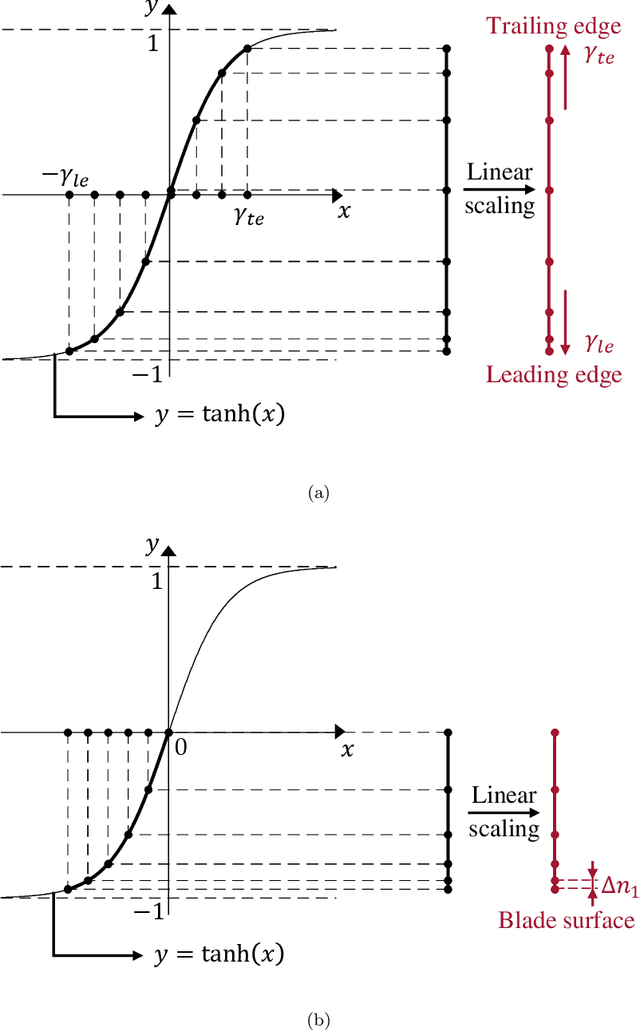
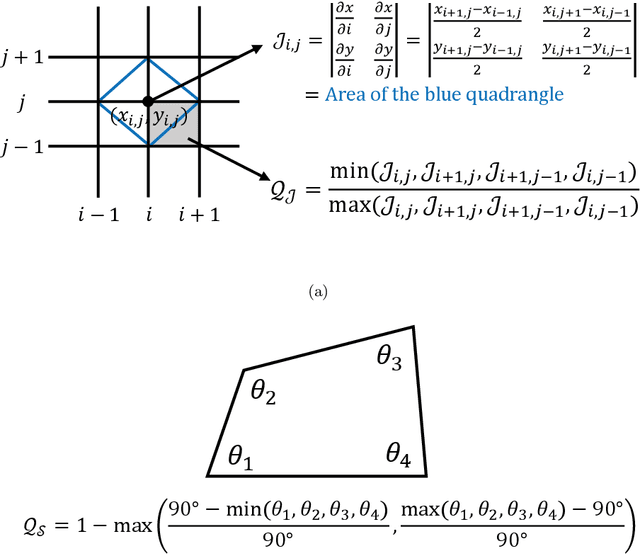
Abstract:A mesh generation method that can generate an optimal mesh for a blade passage at a single attempt is developed using deep reinforcement learning (DRL). Unlike the conventional methods, where meshing parameters must be specified by the user or iteratively optimized from scratch for a newly given geometry, the developed method employs DRL-based multi-condition (MC) optimization to define meshing parameters for various geometries optimally. The method involves the following steps: (1) development of a base algorithm for structured mesh generation of a blade passage; (2) formulation of an MC optimization problem to optimize meshing parameters introduced while developing the base algorithm; and (3) development of a DRL-based mesh generation algorithm by solving the MC optimization problem using DRL. As a result, the developed algorithm is able to successfully generate optimal meshes at a single trial for various blades.
Multi-condition multi-objective optimization using deep reinforcement learning
Oct 10, 2021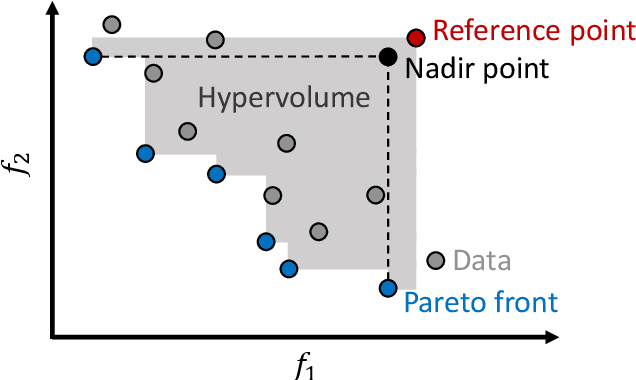
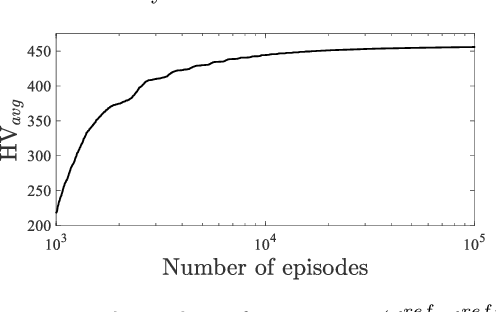
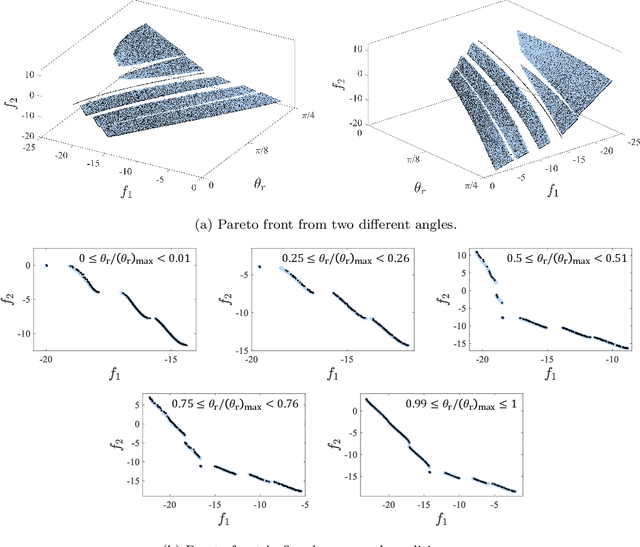
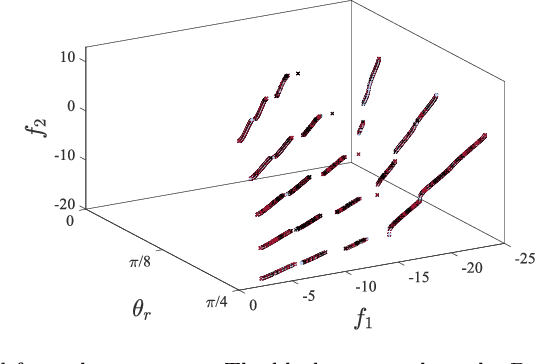
Abstract:A multi-condition multi-objective optimization method that can find Pareto front over a defined condition space is developed for the first time using deep reinforcement learning. Unlike the conventional methods which perform optimization at a single condition, the present method learns the correlations between conditions and optimal solutions. The exclusive capability of the developed method is examined in the solutions of a novel modified Kursawe benchmark problem and an airfoil shape optimization problem which include nonlinear characteristics which are difficult to resolve using conventional optimization methods. Pareto front with high resolution over a defined condition space is successfully determined in each problem. Compared with multiple operations of a single-condition optimization method for multiple conditions, the present multi-condition optimization method based on deep reinforcement learning shows a greatly accelerated search of Pareto front by reducing the number of required function evaluations. An analysis of aerodynamics performance of airfoils with optimally designed shapes confirms that multi-condition optimization is indispensable to avoid significant degradation of target performance for varying flow conditions.
 Add to Chrome
Add to Chrome Add to Firefox
Add to Firefox Add to Edge
Add to Edge